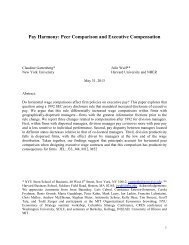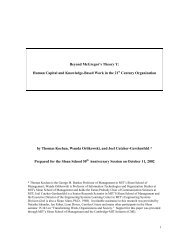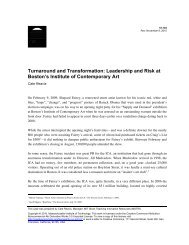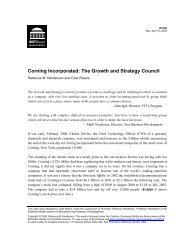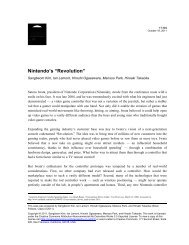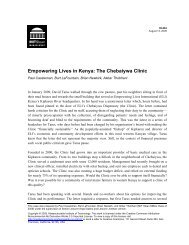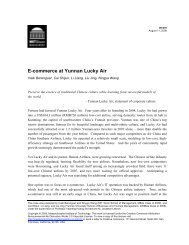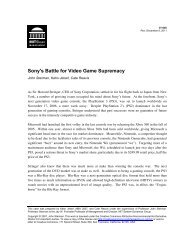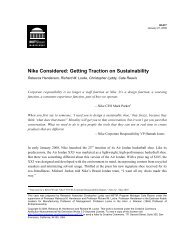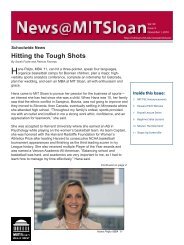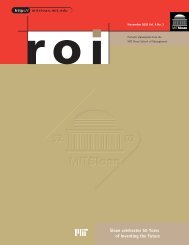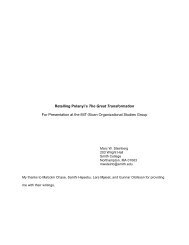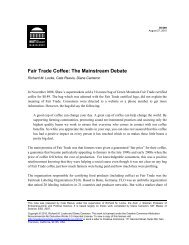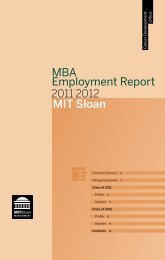Understanding earnings quality - MIT Sloan School of Management
Understanding earnings quality - MIT Sloan School of Management
Understanding earnings quality - MIT Sloan School of Management
You also want an ePaper? Increase the reach of your titles
YUMPU automatically turns print PDFs into web optimized ePapers that Google loves.
tools. Barton and Simko (2002) pursue the idea that a firm’s choice with respect to a particular tool<br />
might be constrained, but they do not pursue the alternatives when the firm is constrained.<br />
A well-recognized problem with studies that use analyst forecasts as a benchmark is that the<br />
analyst is an economic agent with his own incentives. Beating an analyst forecast depends not only<br />
on the firm’s accounting choices, which may affect <strong>earnings</strong> <strong>quality</strong>, but also on the analyst’s<br />
forecasting actions. The studies interpret a relation between “meeting or beating” the forecast and<br />
<strong>earnings</strong> management as evidence that the firm managed <strong>earnings</strong>, while the alternative explanation<br />
is that the analyst managed the forecast (Richardson, Teoh, and Wysocki, 2004). To the extent the<br />
analyst’s actions are influenced by <strong>earnings</strong> <strong>quality</strong> considerations (unmanaged), the net impact on<br />
<strong>earnings</strong> <strong>quality</strong> arising from these incentives is indeterminate<br />
5.6 External factors as determinants <strong>of</strong> <strong>earnings</strong> <strong>quality</strong><br />
conditions.<br />
External factors include political processes, tax and non-tax regulation, 66 and macroeconomic<br />
5.6.1 The political process<br />
Eight papers in our database predict that political processes motivate managers to engage in<br />
income-decreasing <strong>earnings</strong> management, commonly measured by discretionary accruals, during<br />
periods <strong>of</strong> political pressure because pr<strong>of</strong>its generate regulatory or political attention/scrutiny that<br />
can lead to costly intervention or because pr<strong>of</strong>its are a direct input to a political/regulatory decision.<br />
The settings examined include: 1) U.S. International Trade Commission import relief investigations<br />
66 Regulators and regulation may be viewed as external monitors like auditors and boards, discussed in Sections 3.3 and<br />
3.4. Consistent with the Kose and Kedia (2006) framework for internal controls, however, regulation is discussed as a<br />
distinct determinant <strong>of</strong> <strong>earnings</strong> <strong>quality</strong> because it is a force imposed on the firm rather than a monitoring choice made<br />
by the firm.<br />
113



